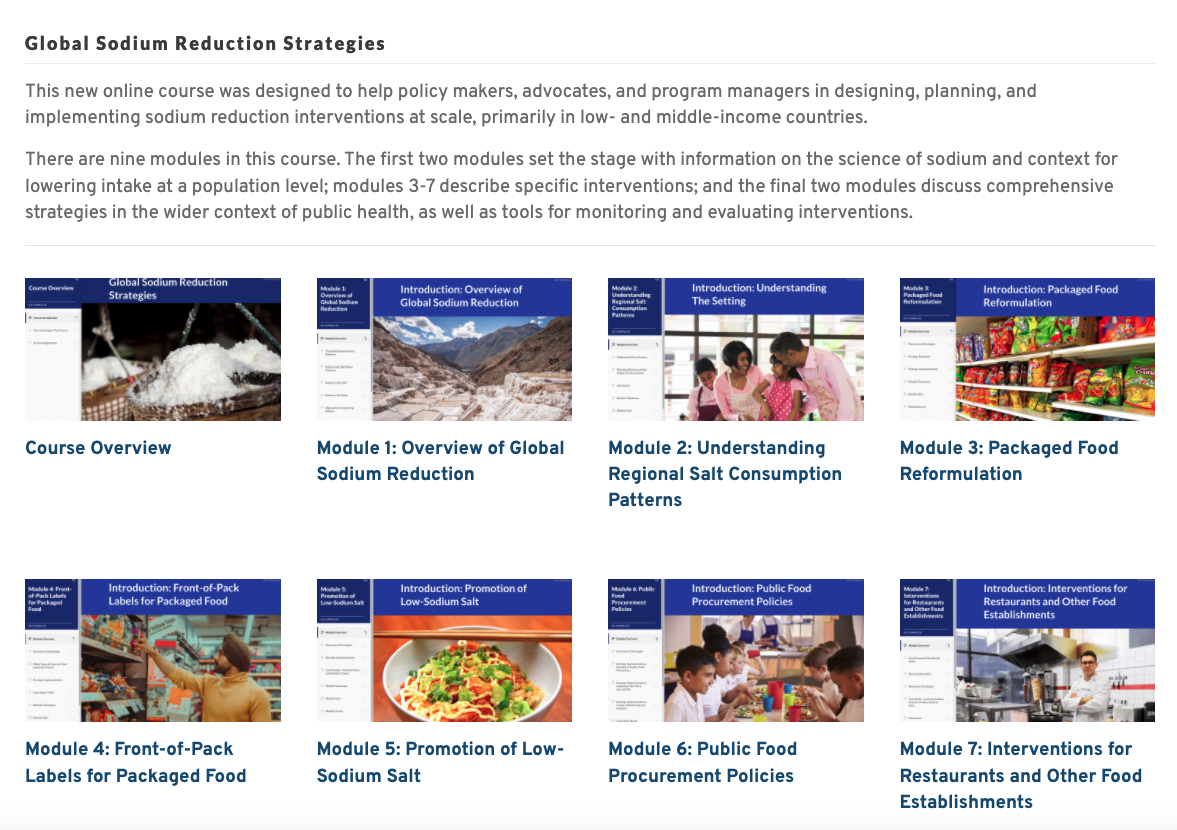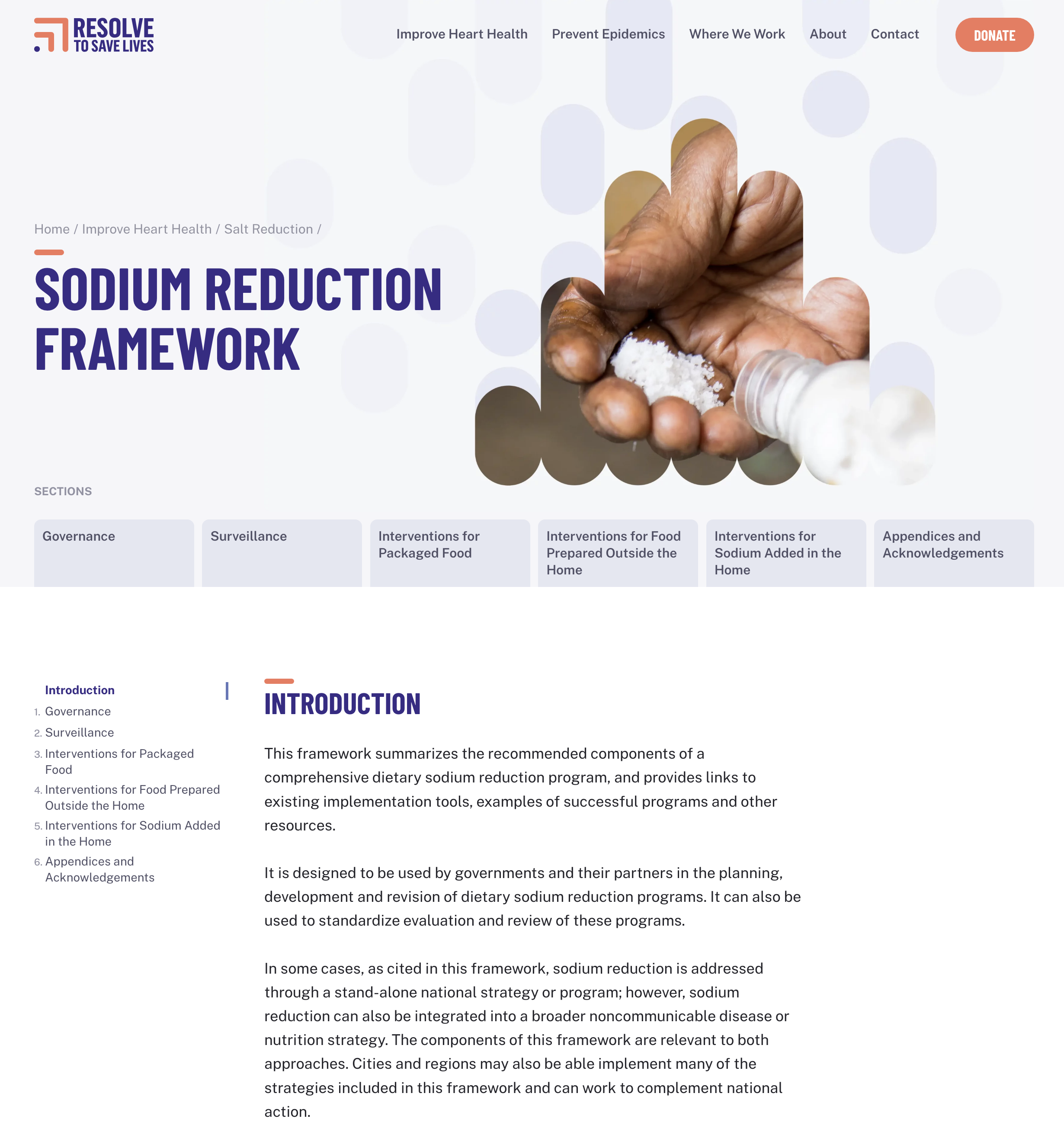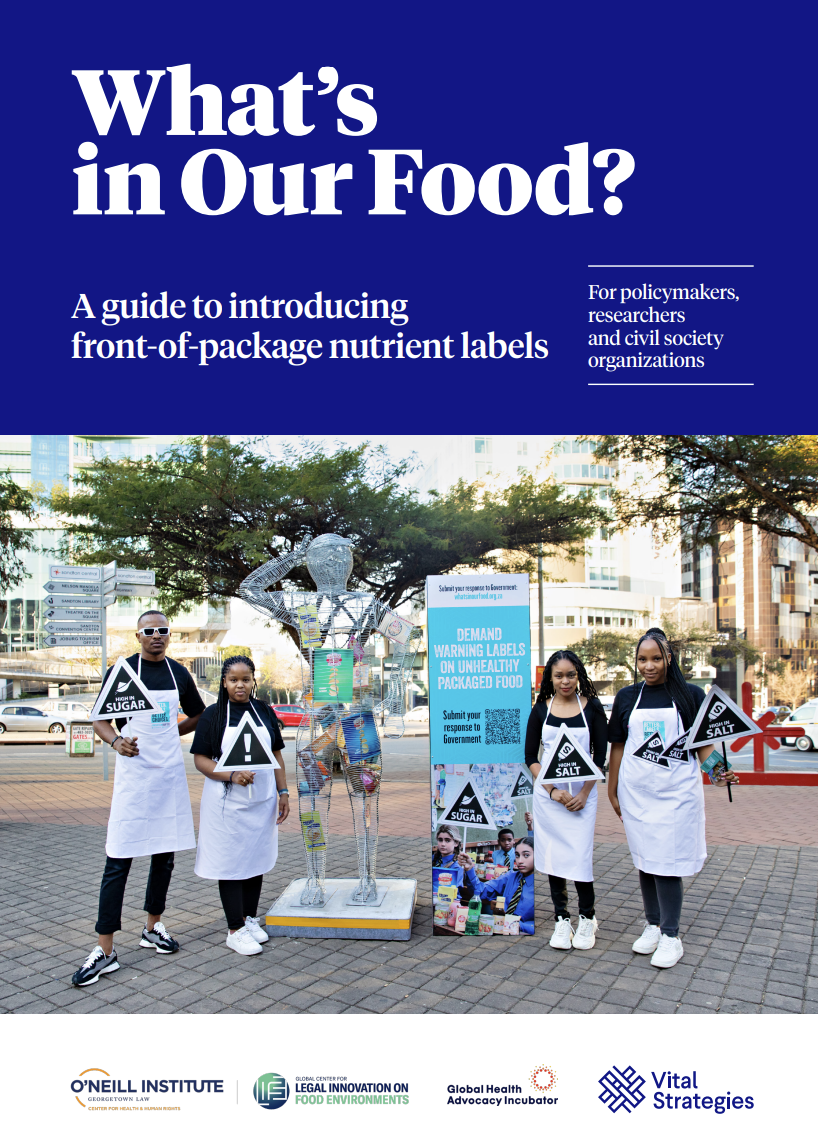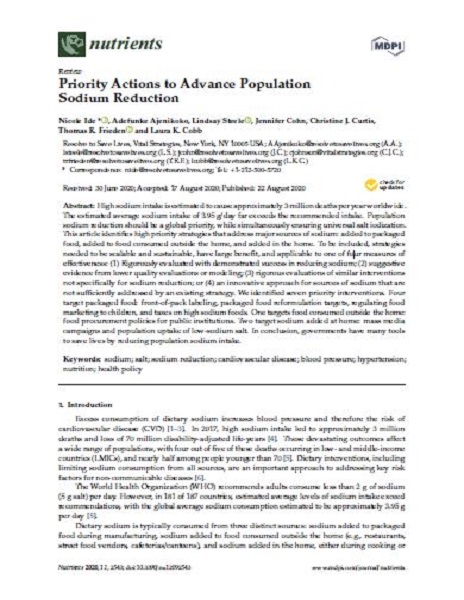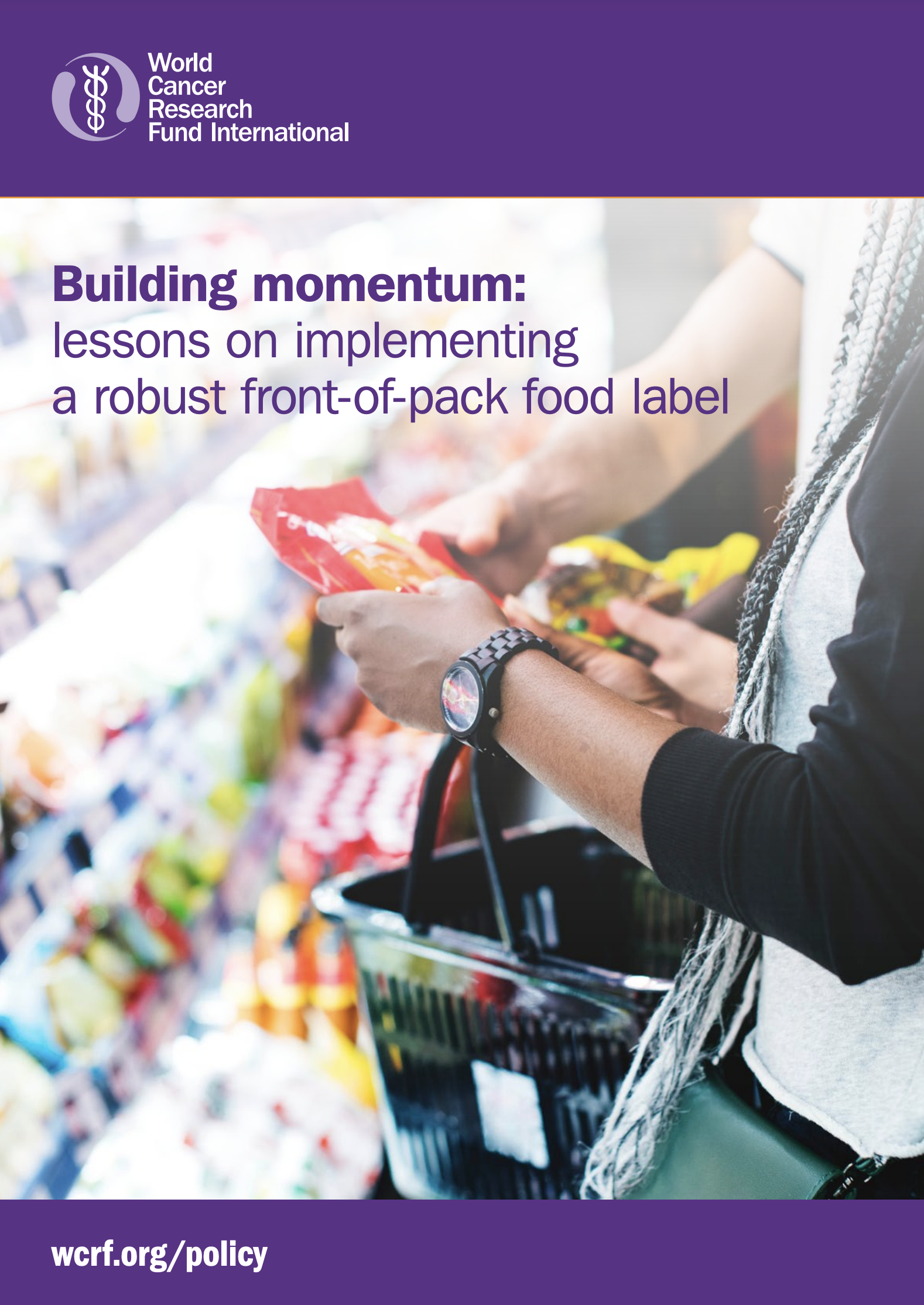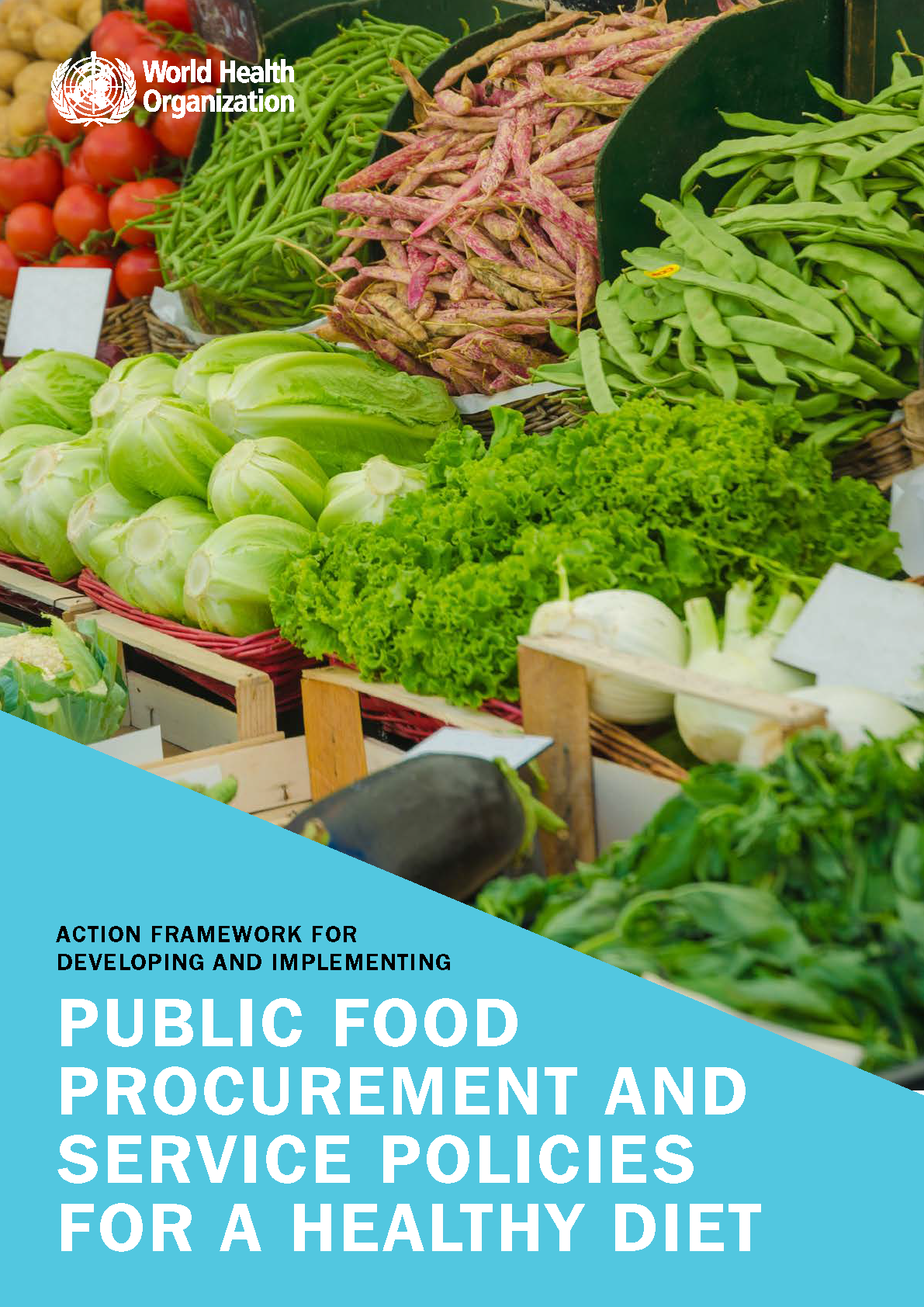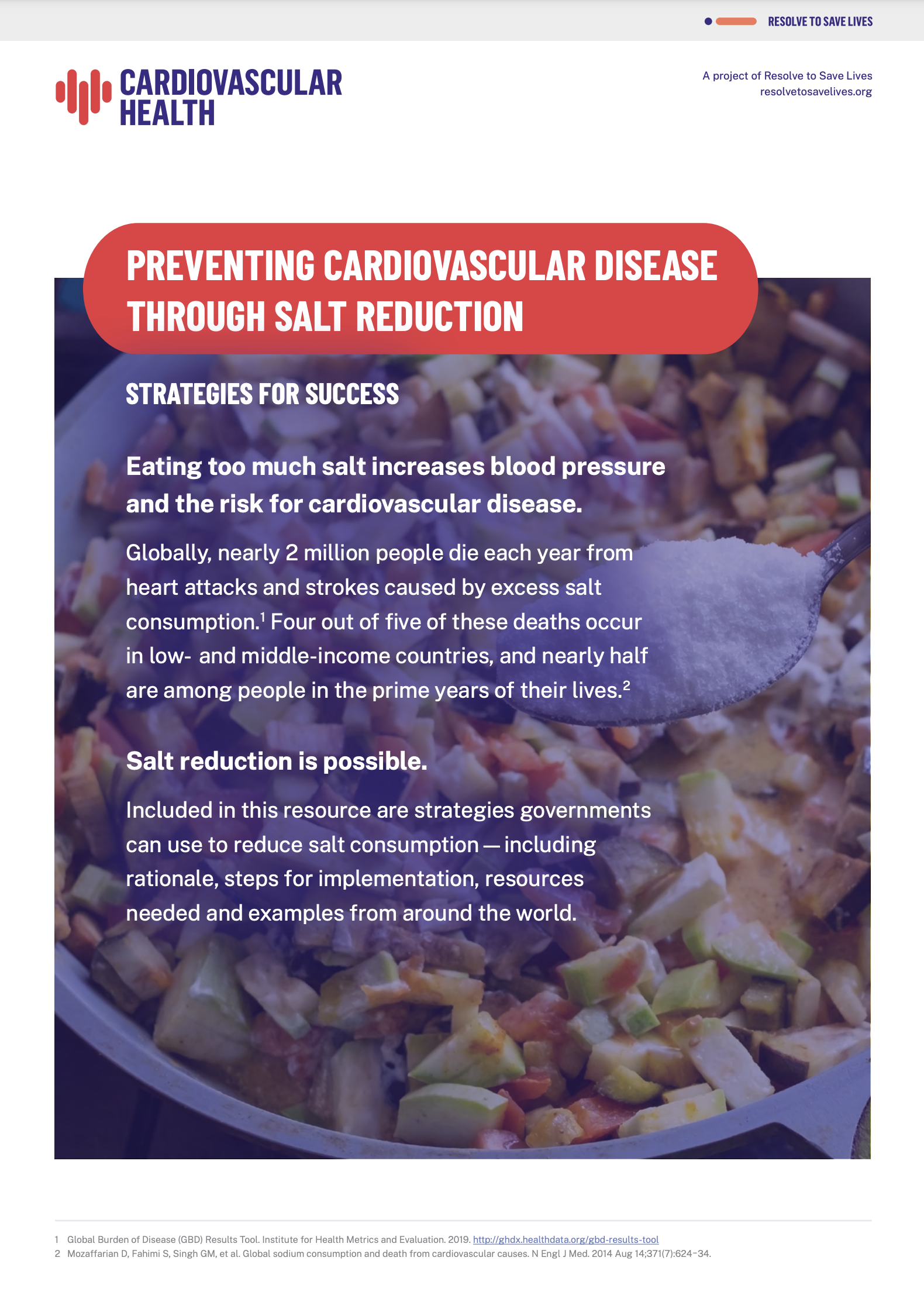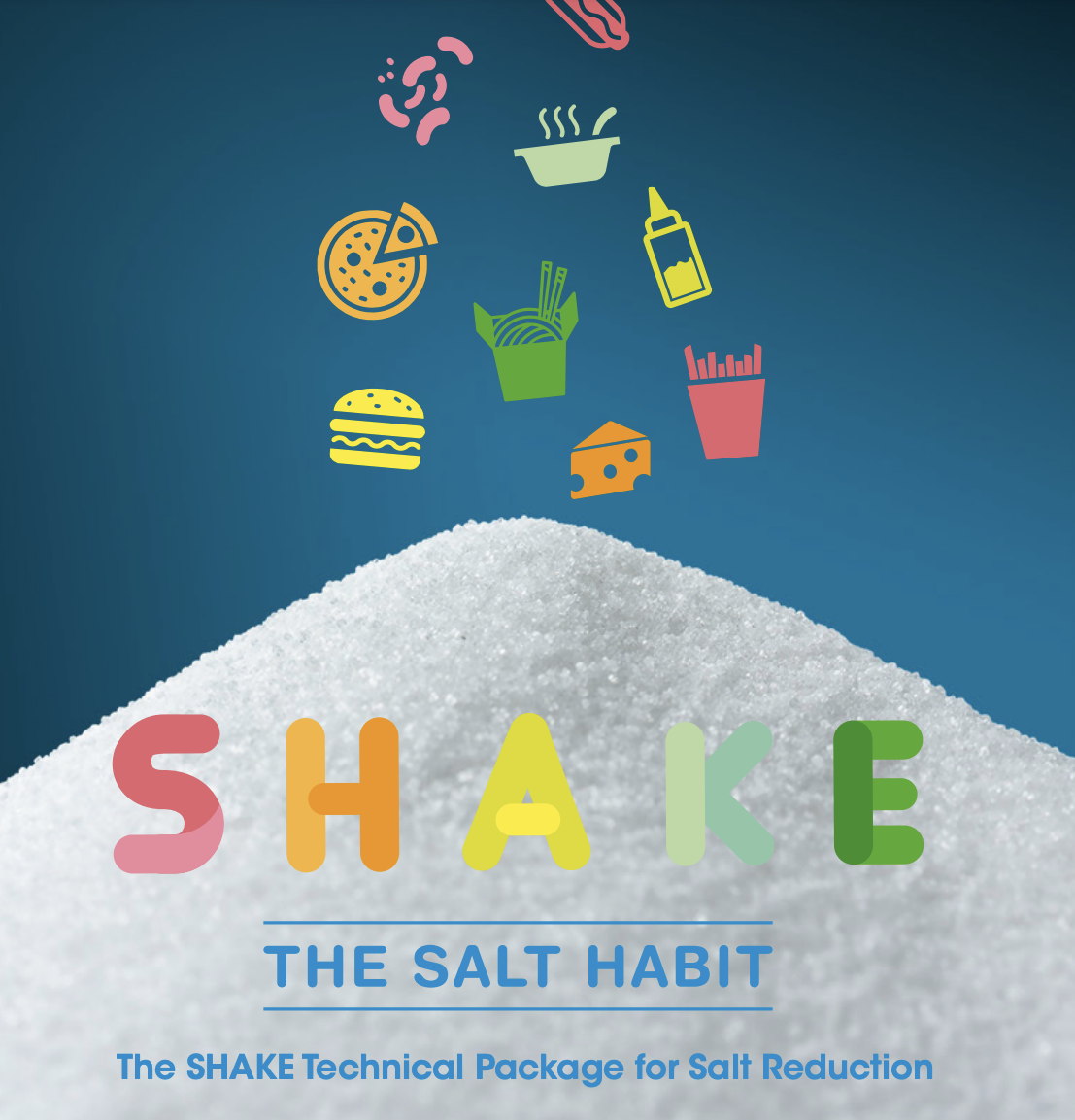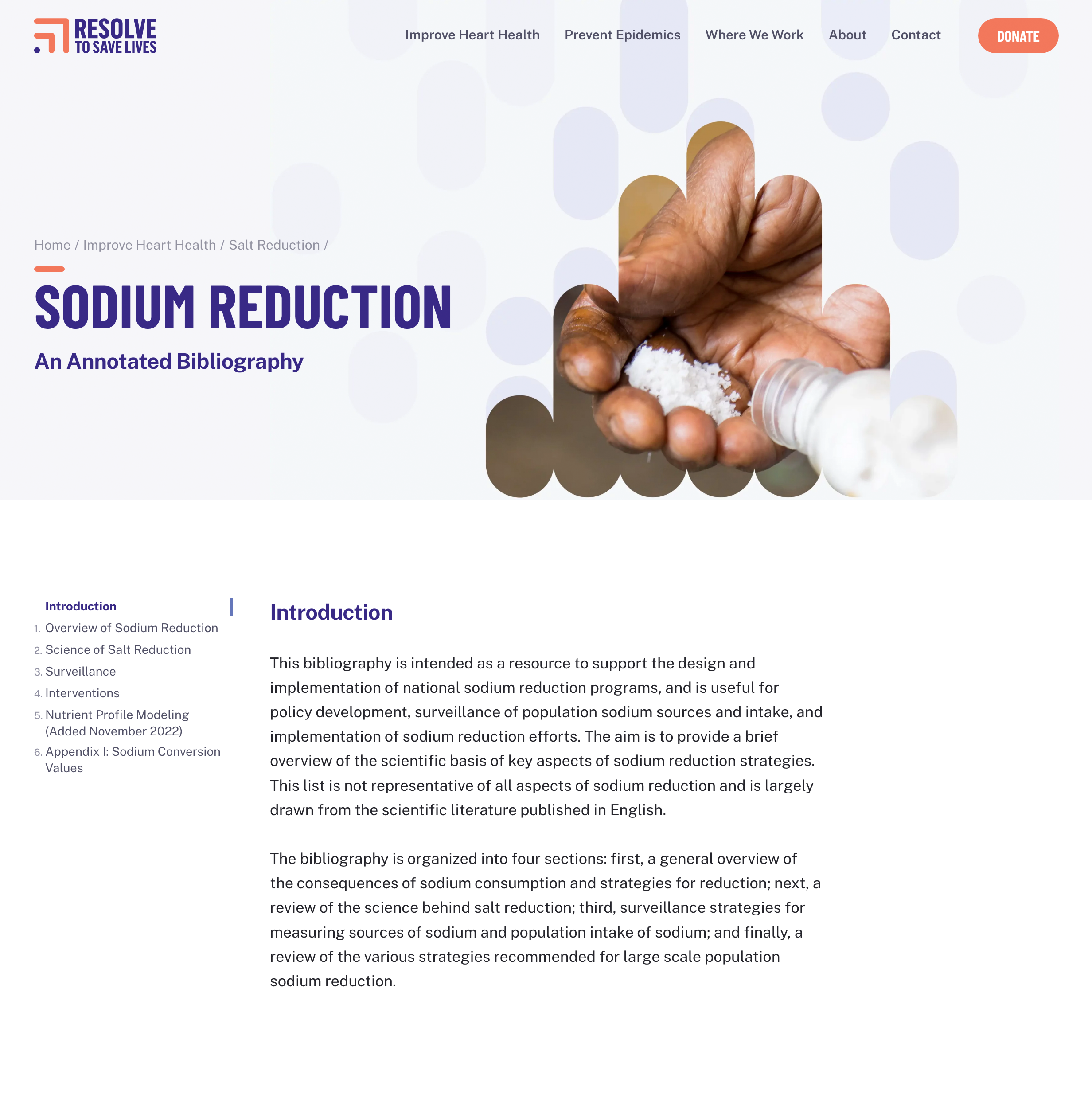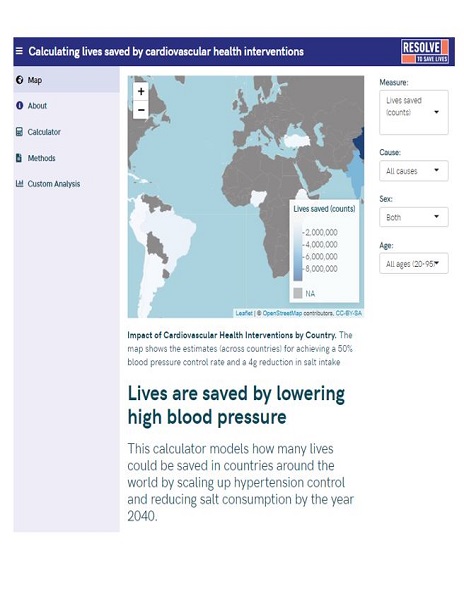Resource Library
Key resources for sodium reduction
Resolve to Save Lives
Specific, measurable, and enforceable global standards for public food procurement
Resolve to Save Lives
Sodium reduction is the single most important dietary intervention for improving heart health and saving lives
Pan American Health Organization
Johns Hopkins School of Public Health
Designing, planning, and implementing sodium reduction interventions in low- and middle-income countries
Resolve to Save Lives
World Health Organization
Nicole Ide et al
World Cancer Research Fund International
Resolve to Save Lives
RTSL’s best interventions for saving lives with sodium reduction.
World Health Organization
Resolve to Save Lives
Resolve to Save Lives and the University of Washington
How many lives could be saved in countries around the world by scaling up hypertension control and reducing salt consumption by the year 2040?
World Health Organization
World Health Organization



